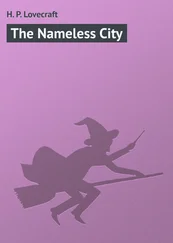Maurus Jokai - The Nameless Castle
Здесь есть возможность читать онлайн «Maurus Jokai - The Nameless Castle» весь текст электронной книги совершенно бесплатно (целиком полную версию без сокращений). В некоторых случаях можно слушать аудио, скачать через торрент в формате fb2 и присутствует краткое содержание. Город: New York, Год выпуска: 1898, Издательство: Doubleday, Page & Company, Жанр: Историческая проза, на английском языке. Описание произведения, (предисловие) а так же отзывы посетителей доступны на портале библиотеки ЛибКат.
- Название:The Nameless Castle
- Автор:
- Издательство:Doubleday, Page & Company
- Жанр:
- Год:1898
- Город:New York
- ISBN:нет данных
- Рейтинг книги:4 / 5. Голосов: 1
-
Избранное:Добавить в избранное
- Отзывы:
-
Ваша оценка:
- 80
- 1
- 2
- 3
- 4
- 5
The Nameless Castle: краткое содержание, описание и аннотация
Предлагаем к чтению аннотацию, описание, краткое содержание или предисловие (зависит от того, что написал сам автор книги «The Nameless Castle»). Если вы не нашли необходимую информацию о книге — напишите в комментариях, мы постараемся отыскать её.
The Nameless Castle — читать онлайн бесплатно полную книгу (весь текст) целиком
Ниже представлен текст книги, разбитый по страницам. Система сохранения места последней прочитанной страницы, позволяет с удобством читать онлайн бесплатно книгу «The Nameless Castle», без необходимости каждый раз заново искать на чём Вы остановились. Поставьте закладку, и сможете в любой момент перейти на страницу, на которой закончили чтение.
Интервал:
Закладка:
“Hell, and all devils!” shouted De Fervlans, springing toward his horse. “The little monster has set the marsh-grass on fire, and it was I who taught the devil’s spawn how to use touchwood! Give chase to the creature!”
But the order for a chase came too late. In ten minutes the reeds growing about the hill were burning, and the demons were compelled to use their spurs in order to speed their horses from the dangerous conflagration.
They did not stop until they had reached the Valla plain—driven to their mad gallop by the caricature of the “militiaman”!
“This is a pretty state of affairs!” grumbled De Fervlans. “Mire first, then flames, bar our way. Quis quid peccat, in eo punitur —he who sins will be punished by his sin! I sinned in teaching that monster to strike fire. It has made us lose four more hours.”
The four hours were of some consequence to the fugitive maid and Ludwig Vavel.
Dawn broke before the demons found the road between the groups of hills, and when they reached it, they still had before them that half of the Hansag which is formed by a series of small lakes.
De Fervlans now became anxious to shorten their route. A lakelet of fifty or sixty paces in width is not an impassable hindrance for a horseman. Therefore it was not necessary to ride perhaps a thousand paces in making a detour of the lakelets—the demons must ride through them. How often had he, when following a deer, swam with his horse through just such a body of water. Only then it was autumn, and now it was spring.
The flora of this marsh country has many species which hide underneath the water, and in the springtime send their long stems and tendrils toward the surface. De Fervlans was yet to learn that even plants may become foes. Those of his demons who were the first to plunge into the water suddenly began to call for help. Neither man nor beast can swim through a network of growing plants; at every movement they become entangled among the clinging tendrils and swaying stems, and sink to the bottom unless promptly rescued. The men on shore were obliged to grasp the tails of the struggling horses and draw them back to land. De Fervlans, who could not be convinced that it was impossible to swim across the narrow stretch of water, came very near losing his life among the aquatic growths. There was now no likelihood of their reaching the highway before sunrise.
There was still another hindrance. The fire in the morass had alarmed the entire neighborhood, and the inhabitants were out, to a man, fighting the flames which threatened their meadows. Therefore De Fervlans, who wished to avoid attracting attention to his troop, was obliged to make his way through thickets and over rough byways, which was very tedious work.
It was noon when they arrived at the bridge which crossed the Raab half a mile from Pomogy. At the farther end of this bridge was the custom-house, which was also a public inn.
“We must rest there,” said De Fervlans, “or our worn-out beasts will drop under us.”
Just as the troop rode on to the bridge, two men ran swiftly from the custom-house toward the swampy lowland. Before they entered the marsh they stopped, and bound long wooden stilts to their feet; and, thus equipped, stepped without difficulty from one earth-clod to another. No horseman could have followed them across the treacherous ground. De Fervlans’s adjutant became uneasy when he saw these two men, whose actions seemed suspicious to him; but the marquis assured him that they were only shepherds whose herds pastured in the marshes.
The troop dismounted at the inn, and demanded of the host whatever he had of victuals and drinks. He could offer them nothing better than sour cider, mead, and wild ducks’ eggs. But when a demon is hungry and thirsty, even these will satisfy him. De Fervlans, who had not for one instant doubted that his expedition would be successful, spread out his map and planned their further march. General Guillaume would have received one of his letters at least,—he had sent two, with two different couriers in different directions,—and would now be waiting at Friedberg for the arrival of the demons and their distinguished captive. Therefore the most direct route to that point must be selected. It was not likely that any militia troops would be idling about that cart of the country; and if there were, the demons could very easily manage them.
CHAPTER III
One of the two men who crossed the morass on stilts was Master Matyas, whose distance marches during this campaign were something phenomenal. Matyas found Count Vavel with his troop already at Eszterhaza, and apprized him at once of De Fervlans’s arrival at the bridge-inn. The Volons had not yet rested, but they had traveled over passable roads, and were not so exhausted. Their leader at once gave orders to mount.
When Ludwig saw that Katharina also prepared to accompany the troop, he hurried to her side.
“Don’t come any farther, Katharina,” he begged. “Remain here, where you will be perfectly safe. Something might happen to you when we meet the enemy.”
Katharina’s smiling reply was:
“No, my dear friend. I have paid a very high entrance-fee to see this tragedy, for that you will kill Barthelmy Fervlans I am as certain as that there is a just God in heaven!”
“But your presence will make me fear at a moment when I must not feel afraid—afraid for your safety.”
“Oh, don’t trouble about yourself. I know you better. When you come in sight of the enemy you will forget all about me . As for me, I am going with you.”
The troop now set out on the march through the poplar avenue. When they drew near to Pomogy, Vavel sent a squad in advance to act as skirmishers, while he, with the rest of his men, took possession of a solitary elevation near the road, which was the work of human hands. It was composed of the refuse from a soda-factory, and encircled on three sides a low building. Vavel concealed his horsemen behind this artificial hillock, then, accompanied by Katharina, he ascended to the top to take a view of the surrounding country.
He could see through his field-glass the bridge across the Raab and the inn at the farther end. The entire region was nothing but morass. A trench ran from the highway toward Lake Neusiedl; it could be traced by the dense growth of broom along its edges.
“You are my adjutant,” jestingly remarked Vavel to Katharina. “I am going down now; for if I should be seen here it will be known what is behind me. You are a farmer’s wife, and will not arouse suspicion; stop here, therefore, and take observations with my glass, and keep me informed of what happens.”
The Marquis de Fervlans was enjoying a tankard of foaming mead when his adjutant came hastily into the room with the announcement that some troopers were approaching the bridge on the farther side of the river. De Fervlans hurried from the inn and gave orders to mount. As yet only the crimson hats of the troopers could be seen above the tall reeds on the farther shore.
“Those are Vavel’s Volons,” said De Fervlans, taking a look through his glass. “I recognize the uniform from Jocrisse’s description. Madame Themire has turned traitor, and sent the count to deal with me instead of coming herself. Very good! We will show the gentleman that war and star-gazing are different occupations. He was a soldier once; but I don’t think he paid much attention to military tactics, else he would not have neglected to occupy yon hill, on which I see a peasant woman with a red kerchief over her head. That is an old soda-factory—I know the place well. I shouldn’t wonder if Vavel had concealed some men there after all! That small body coming this way is evidently bent on a skirmishing errand. Well, our tactics will be to lure him from his concealment.”
Читать дальшеИнтервал:
Закладка:
Похожие книги на «The Nameless Castle»
Представляем Вашему вниманию похожие книги на «The Nameless Castle» списком для выбора. Мы отобрали схожую по названию и смыслу литературу в надежде предоставить читателям больше вариантов отыскать новые, интересные, ещё непрочитанные произведения.
Обсуждение, отзывы о книге «The Nameless Castle» и просто собственные мнения читателей. Оставьте ваши комментарии, напишите, что Вы думаете о произведении, его смысле или главных героях. Укажите что конкретно понравилось, а что нет, и почему Вы так считаете.












